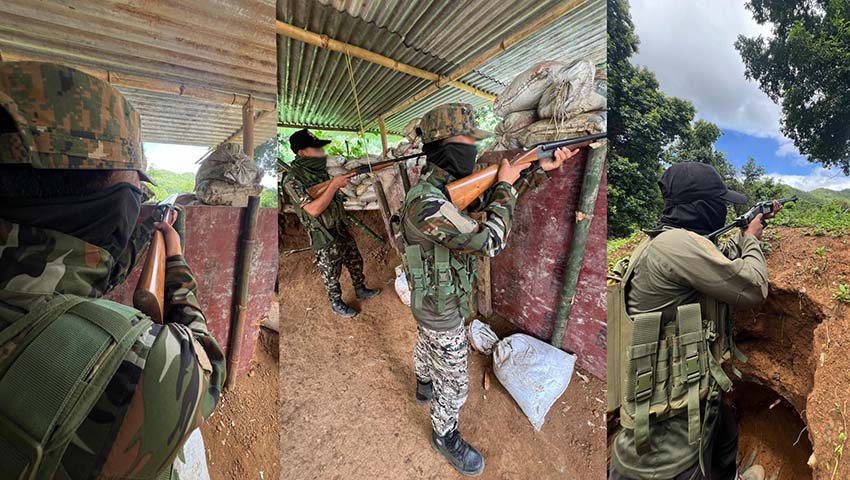In the wake of ongoing unrest in Manipur, many of the state’s youth are grappling with a dilemma: their safety and the future of their homeland versus their educational and career aspirations.
The conflict, which erupted in May of last year, has compelled thousands of young individuals to take up the mantle of village volunteers, prioritizing the defence of their communities over their personal ambitions.
Manipur, despite its economic challenges, has always placed a high value on education. Many students were displaced by the unprecedented ongoing conflict. To ensure that their education is not affected, state government provided free education enrolling them in government school. Yet many displaced parents whose income has been hugely affected has even decided to transfer their children in private school. Despite of it, many youths from both peripheral areas, cities are diverted from career or ambition concerning about state’s safety.
The violent clashes that have plagued the state since last year have forced a significant portion of the youth to abandon their studies, at least temporarily, to protect their villages. These volunteers, many of whom are under 30, have been tirelessly guarding vulnerable areas prone to violence, often at the cost of their own futures.
One of the leaders of the village volunteers, now in his 30s, shared the sacrifices these young people have made. “Many of us have been away from our families for over a year, only visiting for a few hours at a time,” he said. “Since the conflict began, thousands have come forward voluntarily to protect our communities. It’s difficult to quantify their numbers, but estimates suggest there may be over 50,000 volunteers, many of whom are still students from class 9 to graduation level.”
Despite their duties as volunteers, these youths have not completely abandoned their education. They make it a point to appear for their exams, even if attending regular classes is impossible. “We advise all student volunteers not to drop their studies entirely,” the leader added. “Education remains crucial, but so does the protection of our villages.”
A 20-year-old volunteer, who is currently pursuing a Bachelor of Arts degree and is an avid football player from Imphal City, expressed the conflict he faces daily. “Sometimes I miss my normal routine—going to college, attending football practice—but nothing is more important than protecting our state. I continue my studies by appearing for exams, even though I can’t attend classes. I have no regrets about diverting my life from its usual path. Protecting my motherland and my family is more important than anything else.”
Another young volunteer, who had aspired to appear for central service examinations, echoed these sentiments. “What’s the point of focusing solely on education when Manipur’s future is at stake?” he asked. “The youth have a responsibility to safeguard our state. While balancing both education and village protection is challenging, it’s necessary.”
These volunteers face not only the physical dangers of guarding conflict-prone areas but also the mental toll of prolonged exposure to stress and anxiety. Despite these hardships, their resolve remains unshaken. They have begun incorporating fitness activities and peer counselling into their routines to maintain their health and morale.
When asked how long he would continue his voluntary service, one young man responded resolutely, “I will continue until this conflict is resolved. The authorities must ensure that the issue of illegal immigration is addressed and that Manipur’s territorial integrity is preserved.”
The conflict in Manipur, primarily between the Meitei and Kuki communities, has displaced many and claimed numerous lives since it began last May. While efforts to restore peace are ongoing, a lasting resolution has yet to be achieved. In the meantime, the youth of Manipur remain at the forefront, sacrificing their personal dreams for the future of their homeland.












